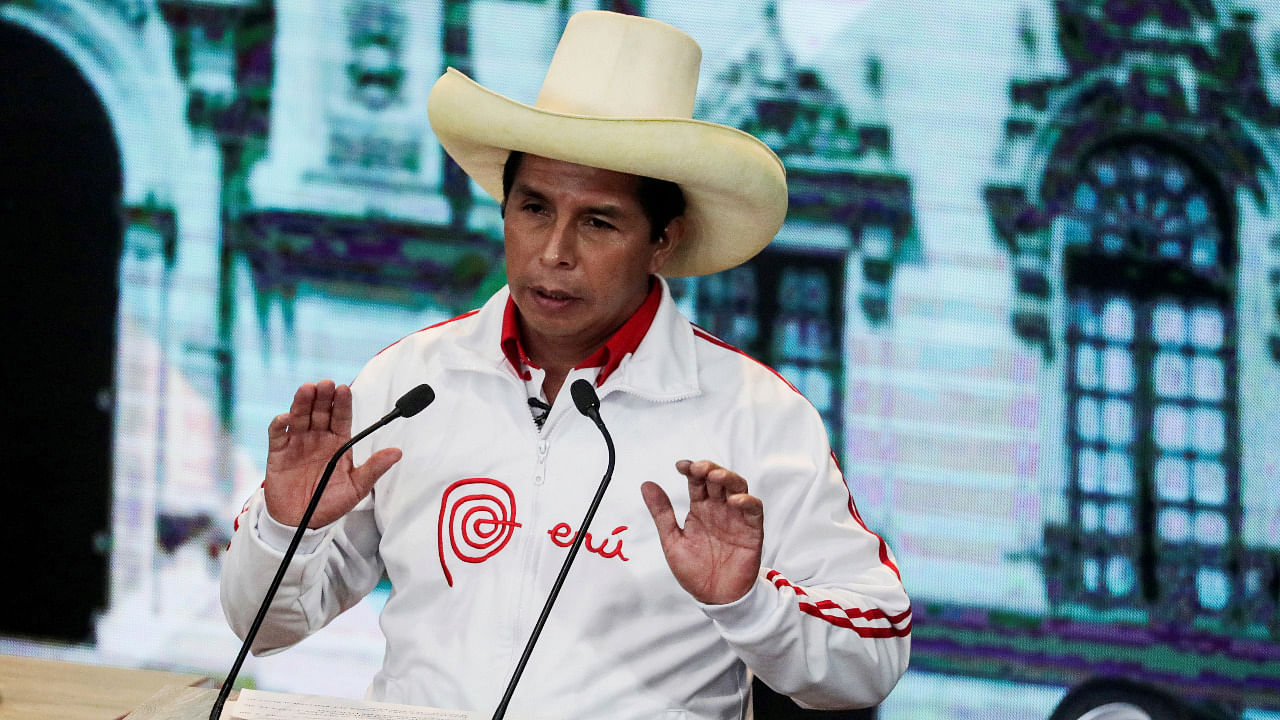
News about Latin America is rarely in Indian media, but the current resurgence of the Left is worth noting. The victory of socialist schoolteacher Pedro Castillo in Peru is the latest in a wave in a region where the free-market doctrine dominated in recent decades.
In a close election, Castillo won against far-Right Keiko Fujimori, who faces money laundering accusations and is challenging Castillo’s indigenous and mixed-race majority. Backed by youth alienated by inequality, poverty and corruption, but with no political experience, Castillo’s Free Peru Party confronts a Right-wing in parliament that will challenge his economic plans. Chile has elected a liberal Constituent Assembly to replace its ultra-Right Pinochet-era constitution. The region's wealthiest nation per capita is notorious for high inequality levels. The Right led by President Sebastian Pinera is discredited and the next polls may see a Left-leaning party win.
Unrest swept Colombia after President Ivan Duque Marquez's Centre-Right government raised taxes and introduced austerity measures. Colombia’s Right is fractured while poverty affects over 40% of the population, unemployment is high and Covid-19 has devastated the economy. The protests, demanding universal basic income and free college education for the lowest taxpayers, were met with considerable force, which backfired, forcing the government to roll back the austerity measures. Colombia is the only Nato partner in Latin America and is backed by Washington to contain revolutionary dissidents in longstanding conflicts. The Left-wing candidate, Gustavo Petro, leads in polls for next year’s presidential election.
Brazil Supreme Court’s ruling last March overturned former leftist President Lula da Silva’s (2003-10) conviction for corruption and should allow him to contest next year’s election. Polls show Lula leading President Jair Bolsonaro, labelled ‘Trump of the Tropics’, who is losing support, with Brazil registering half a million Covid-19 deaths, the second-highest worldwide.
Brazil is a regional heavyweight. Moderate leftist governments under Lula and his successor Dilma Rousseff of Workers’ Party (PT) lifted millions out of poverty. Record growth funded social investments that halved wealth inequality. Brazil supported the more radical Left in Ecuador, Bolivia and Venezuela. The Union of South American Nations (UNASUR-2008) and Community of Latin American and Caribbean States (CELAC-2011) that sought greater integration of the region could not have materialised without PT’s backing. Brazil under Lula was also key to building BRICS (Brazil, Russia, India, China and South Africa) as an alternative politico-economic pole to G-7 (Canada, France, Germany, Italy, Japan, the UK and US).
Lula's return would re-energise BRICS, reviving the promise of a multi-polar world. Moreover, for the first time in many years, Latin America’s three largest economies— Argentina, Mexico and Brazil— could operate with some degree of concert and challenge the stance of the US-controlled Organisation of American States and the Lima Group that oppose regimes in Venezuela, Cuba and Nicaragua.
Luis Arce was Vice President of Evo Morales, a popular indigenous, Left-wing leader ousted in 2018 by the Right aided by the military. After Arce’s election as president in 2020, he restored Bolivia’s membership of CELAC, UNASUR, and Left-wing Bolivarian Alliance for the Peoples of Our America (ALBA, founded by Venezuela and Cuba in 2004). CELAC is the only pan-American organisation minus the US and Canada; UNASUR encompasses all South America, and ALBA aims to promote cooperation within Latin America free of US influence.
The coming elections may enable the Left to rejuvenate these groupings. Castillo, Lula and Arce— along with Presidents Lopez Obrador (Mexico) and Alberto Fernandez (Argentina)— reject the neoliberal economic order which has led to unequal wealth distribution, economic stagnation and high unemployment, provoking popular disillusionment. Latin America has suffered from prolonged political instability and development, investment and growth have suffered. The global economic downturn exacerbated the problems of the primarily commodity-driven economies. The privatisation of assets, erosion of industrial and technological base and the creation of a super-rich oligarchy was the result and lack of local opportunities led to migration to North America.
Leftist movements in Latin America are not driven by geopolitical competition, nor the influence of Russia, China or Cuba, but by the failure of most governments to adapt to capitalism by consolidating adequate regulatory institutions. It will be instructive to see how US policy reacts to the current leftist wave, which is viewed as anti-American. Washington cannot ignore these events, despite its stated emphasis on Asia and the Indo-Pacific.
Focus for India
India has maintained relations with the political spectrum in Latin America, with varying success on the Left. Given the economic emphasis on our relations with the region and our agnostic political attitude, India should take note of the political developments and welcome the democratic success of the Left, which is gaining significant ground.
(The writers are former Indian ambassadors)